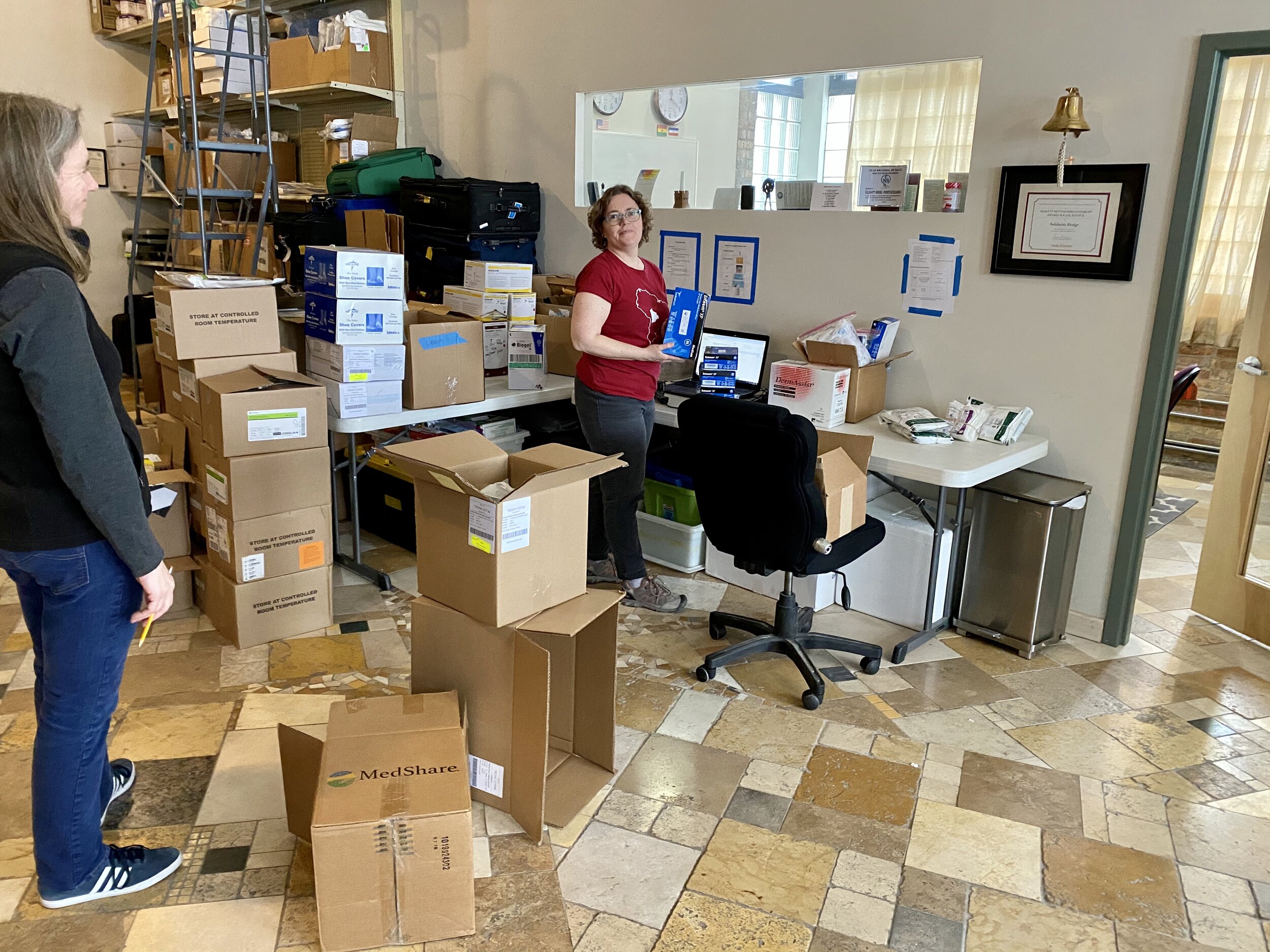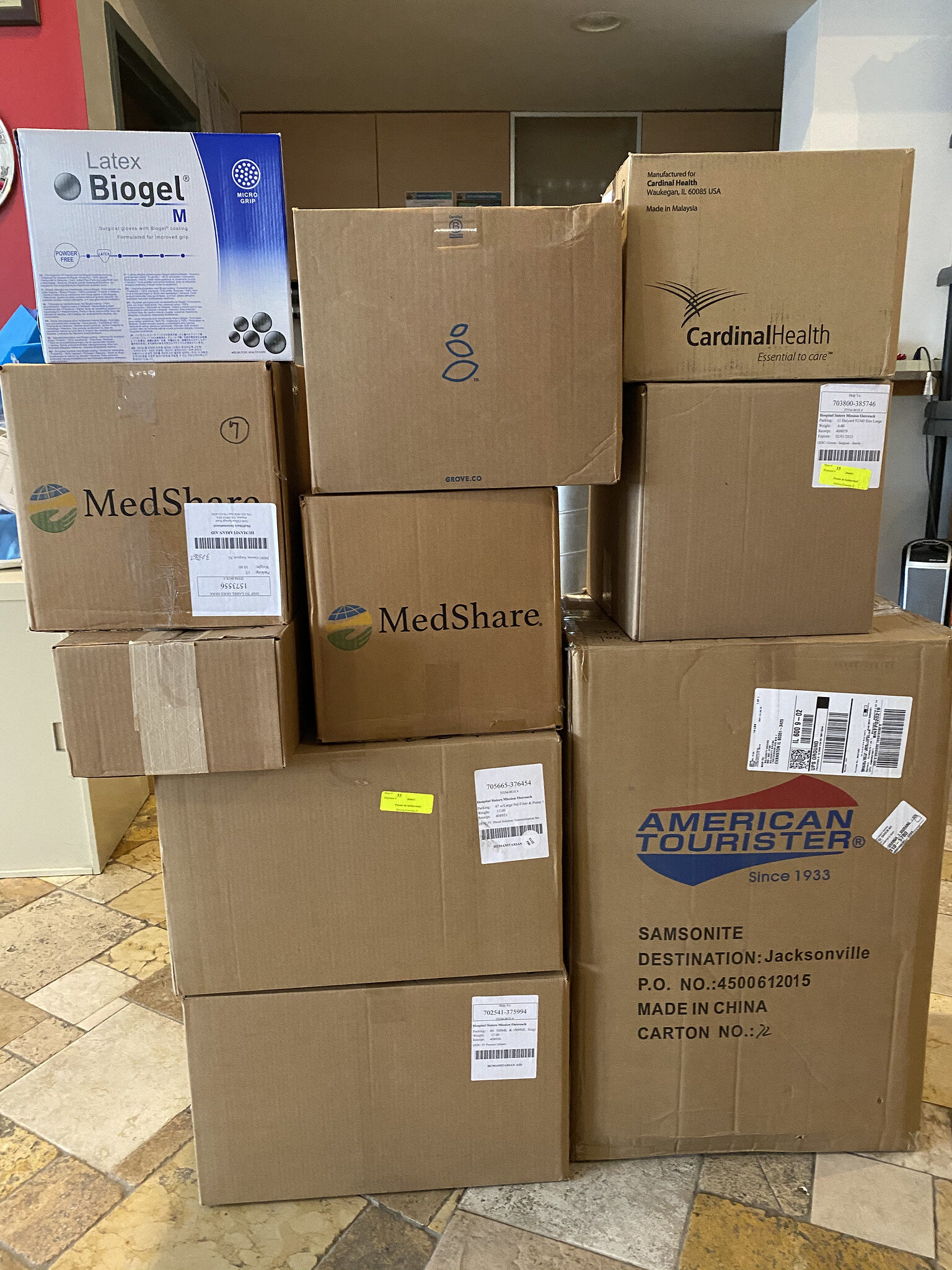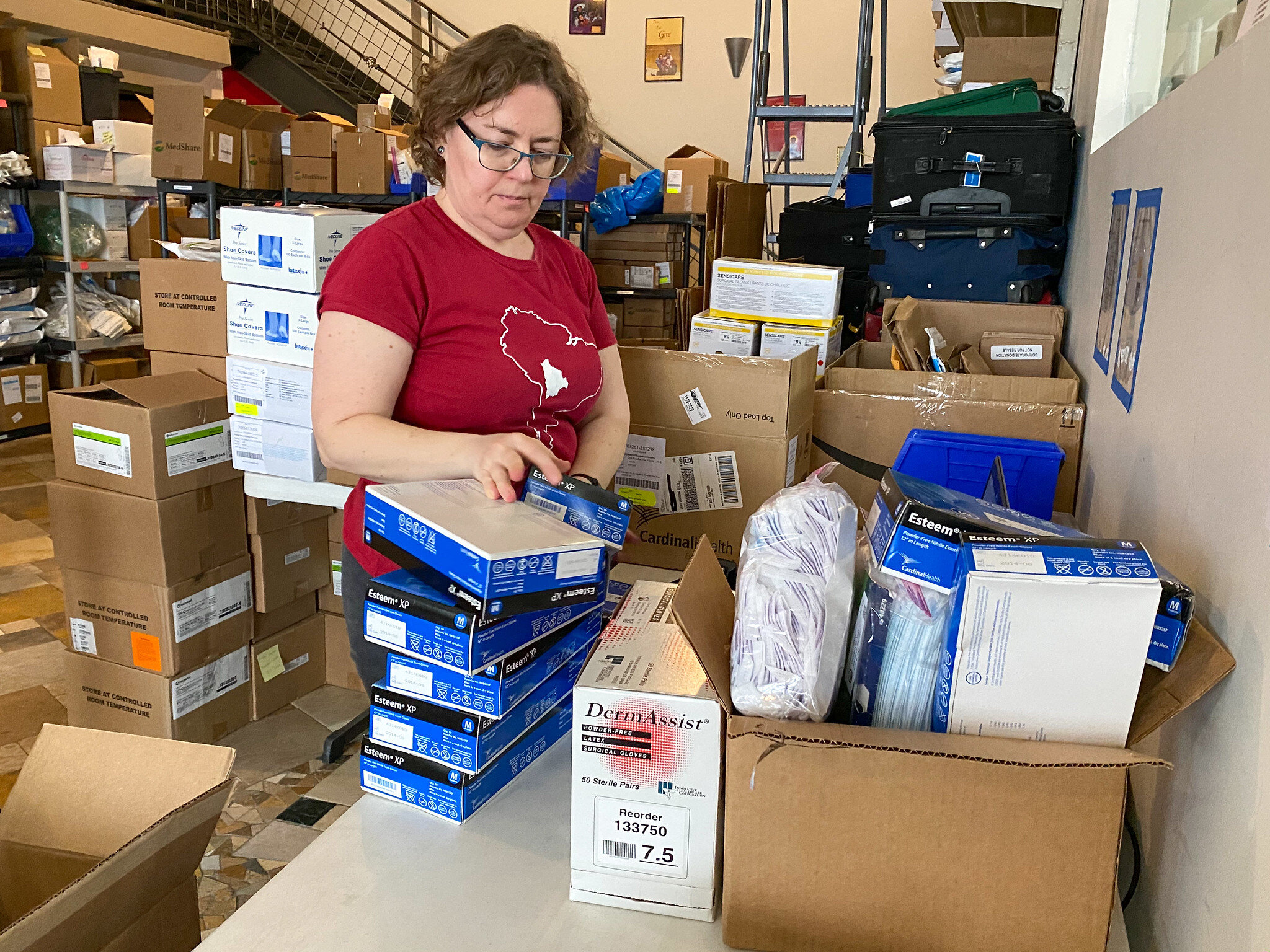PPE Donations Help Those in Need, Regardless of Geography
Written by Jodi Grahl
As many of you know, just three days before departure, our Oncological Surgery Mission Trip was postponed indefinitely due to the Covid-19 crisis. Among the many repercussions, this meant that 1,500 pounds of vital medical supplies were left marooned in our Evanston office.
More than 30 suitcases were packed and ready for our departure
Hand carrying materials in our checked luggage is how we deliver most supplies, especially high-value items such as laparoscopic instruments, implantable devices, and anesthetics. It breaks my heart to see more than 30 suitcases stranded in our office, knowing that their contents could be saving lives in Bolivia. In the meantime, our Bolivian partner doctors assure us that they will continue as they always do, doing their best with what they have.
Amid this frustration, we realized that some of the materials—ironically, those we categorize as the “low-value stuff,” facemasks, shoe covers, sterile gowns and gloves—were suddenly in short supply right here at home. Given the unpredictable horizon for our return to Bolivia, our staff and Board of Directors decided to donate this personal protective equipment (PPE) locally. Because some of the supplies might even expire before we can travel again, we feel it is important to put them to use where they are urgently needed.
I reached out to Dr. Rob Feldman, emergency medicine doctor at Stroger Hospital, part of the Cook County public hospital system serving the neediest populations of Chicago. In his additional role as Disaster Director for the Cook County Health and Hospital System, Rob has been busy for weeks tracking down PPE supplies. (Rob also happens to be my brother-in-law, so I know his other credentials include being a master peach cobbler baker. But I’ll leave that topic for another blog.)
Rob directed me to an online donation form. Just hours later, I received the call asking if they could pick up the materials that same night. Stroger Hospital’s materials management department was critically low on masks and gowns, among other items.
I had very mixed feelings handing off these supplies. Solidarity Bridge had committed to deliver them to Bolivia, and through my 25 mission trips I have seen first-hand the immense need in our partner hospitals. But I remembered the message we work so hard to instill in the hearts of our missioners before they leave on a mission trip: Solidarity is also about recognizing our own vulnerability and need for help from others. Each and every one of us will, at some point, find ourselves in need. The reality is that our neighbors served by Cook County hospitals—who include a high proportion of uninsured, undocumented, homeless, jailed, and otherwise marginalized patients—need our help as well as those in the southern hemisphere, now more than ever.
Today’s universal call to solidarity is also illustrated by the doctors and nurses from throughout Latin America working alongside their peers in European hospitals. The BBC recently reported on doctors from Argentina, Ecuador, Peru, Cuba and Venezuela who’ve arrived to relieve the workloads of their brothers and sisters in Spain and Italy. These young men and women from “under-resourced countries” and regions are willing to risk their own health and safety to save communities in the “developed” world. It is incredibly humbling to see these expressions of selflessness and generosity at this moment when most of us are called to do nothing more than sit at home.
Doctors at the Cliza Hospital in Bolivia are grateful for a donation of PPE
As I write this blog, a photo popped up on my phone from the San Juan de Dios Municipal Hospital in Cliza, a small town in central Bolivia. The hospital just reported their first patient with Covid-19, and they are extremely grateful to have received a PPE delivery a few days ago from our Bolivia partner warehouse. This illness knows no boundaries, and neither does solidarity.
I also received a text from Rob: “Consider the PPE a loan. We will repay once this settles down. Our materials management department thanks you and SB!”
In the meantime, may each of us continue to share and give whatever we can to care for our brothers and sisters, wherever they may be.
In the midst of a global pandemic, the risk for patients with other health needs increases.
Will you donate today to ensure that our programs can continue throughout this crisis?





